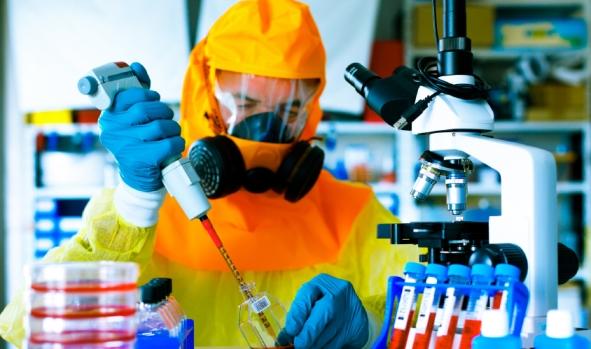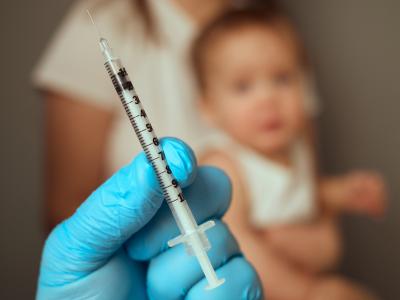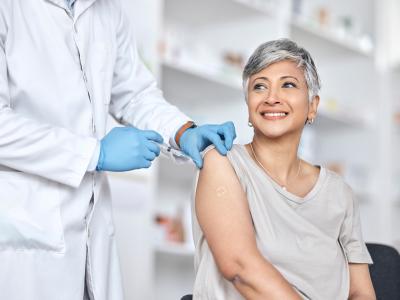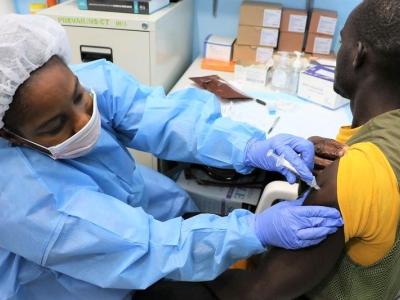In new developments with Ebola countermeasures, Novavax today announced encouraging initial phase 1 findings for its vaccine candidate, and the US Department of Health and Human Services (HHS) yesterday announced a $19.7 million partnership to develop a new monoclonal antibody treatment.
After a steep drop in cases over the past few months, progress against the disease has leveled off over the past few weeks, with a cluster of new cases reigniting Ebola fears in Liberia, which had been free of the virus.
Though the decline in cases makes it tough to do efficacy studies, research work continues on a host of vaccine and drug candidates against the virus.
Results of Australian vaccine trial
Novavax's candidate is an Ebola virus glycoprotein (GP) recombinant nanoparticle vaccine that contains the "Matrix-M" adjuvant. The company said in a statement that it presented data from the phase 1 trial at the World Health Organization (WHO) Fifth Teleconference on Ebola vaccine trials. The vaccine targets the Ebola Makona strain, which is responsible for West Africa's epidemic.
Overall, the company said the trial revealed that Ebola GP was highly immunogenic, well tolerated, and when used with the adjuvant allowed significant antigen dose-sparing.
The dose-escalation trial evaluated the vaccine with and without the adjuvant in 230 healthy adults from 18 to 49 years old. In a copy of its presentation posted on its Web site, Novavax said the study was conducted in Australia, with the first dose given in early February and the last patient receiving the second dose in April.
Study participants received one or two intramuscular injections containing 6.5 to 50 micrograms of antigen 3 weeks apart. Researchers measured immunogenicity multiple times, including days 28 and 35.
Adjuvanted Ebola GP was highly immunogenic at all dose levels. The two-dose regimen induced a 500- to 750-fold rise in antibody levels over baseline at day 35, and the single dose resulted in a 21- to 27-fold rise over baseline at day 35.
Local and systemic reactions were slightly more common in the adjuvant groups, with symptoms mild-to-moderate and transient.
Gregory Glenn, MD, Novavax's senior vice president of research and development, said in the statement, "These data together with two positive challenge studies in nonhuman primates suggest that the Ebola GP vaccine would be protective in humans."
Novavax also said its recombinant vaccines don't need to be shipped or stored frozen, an important consideration for a vaccine that might be deployed against a novel lethal virus. The company is using the same approach to develop vaccines against H7N9 avian influenza and Middle East respiratory syndrome coronavirus (MERS-CoV).
The product is the fifth Ebola vaccine or regimen to be tested in humans, and researchers are having a difficult time doing phase 3 studies in the outbreak region, due to the drop in cases over the past few months. The two most advanced products in testing are VSV-EBOV, which uses an Ebola virus protein spliced into a vesicular stomatitis virus (VSV), and one using a modified chimpanzee adenovirus (ChAd3). Two prime-boost regimens just entered phase 2 trials, one developed by Johnson & Johnson and one that pairs ChAd3 with a modified vaccinia Ankara booster.
Contract issued for ZMapp-like drug
Meanwhile, HHS yesterday announced that its Biomedical Advanced Research and Development Authority (BARDA) has issued a 2-year, $19.7 million task order to Emergent BioSolutions to develop a new monoclonal antibody treatment for Ebola.
In a statement, HHS said the task order is the first to be issued to a Center for Innovation in Advance Development and Manufacturing (CIADM) partner. Emergent BioSolutions is one of three CIDAMs, established in 2012 to speed the development of promising medical countermeasures.
Under the contract, Emergent will begin advanced development and manufacturing of the drug at its Baltimore Bayview facility.
HHS said the drug uses the same three monoclonal antibodies as ZMapp, made by Mapp Pharmaceuticals in San Diego. However, Emergent produces it in mammalian cells, rather than tobacco plants, speeding up the process. It added that the process will provide more of the drug for clinical studies and, if successful, for possible stockpiling.
ZMapp was used on an emergency basis for some healthcare workers and other responders sickened in the epidemic, but supplies were very limited.
Emergent said in a statement yesterday that the facility where the monoclonal antibodies will be made is outfitted with disposable manufacturing technology, such as single-use bioreactors, that can produce viral and nonviral products with a quick turnaround.
See also:
Jul 21 Novavax press release
Novavax presentation
Jul 20 HHS press release
Jul 20 Emergent BioSolutions press release

















